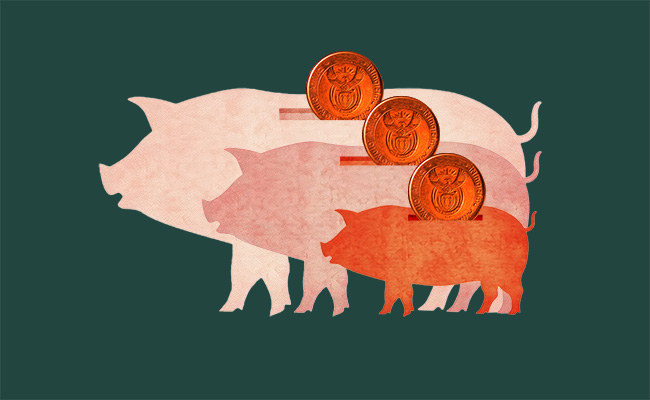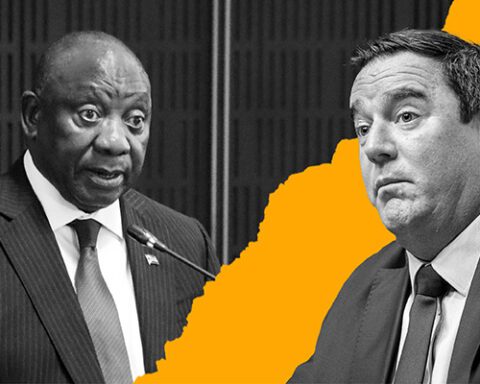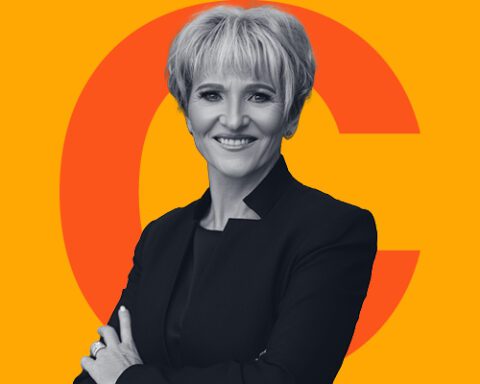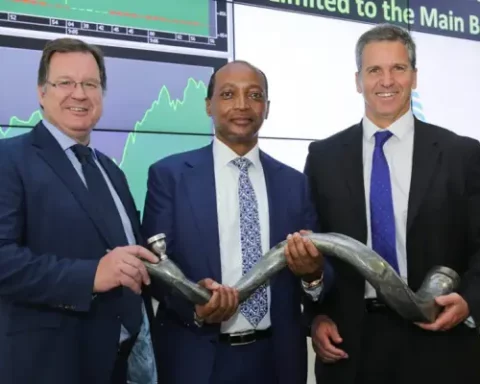As a young financial planner, Rudolph Geldenhuys wasn’t following the advice he was giving his clients. He and his wife, who is also in financial services, weren’t saving or tracking their expenses and soon their debt mounted.
“I wasn’t a good steward of my money,” Geldenhuys tells Currency, despite having a BCom and postgraduate diploma in financial planning. “If only somebody had a conversation with us not to say, ‘you need to save’ but actually ‘what are you trying to achieve out of life and how can we help you on that journey?’”
For Geldenhuys it doesn’t help “to receive financial or investment-based advice – because that’s the tactics; it’s more important to start with the why”.
That, for him, is the secret sauce: defining the purpose of why you are saving, otherwise you’ll never stick to the plan. The basics count, of course; you have to determine how much money is coming in, and how much is going out, and what it’s being spent on, before you can consider your next steps.
“If I was talking to my younger self, say, 22 and just started working, the first thing is to do a budget. Work out what you can save, maybe 10%,” he says. “Then, build up an emergency fund of three to six months’ worth of household expenses because life happens – retrenchment, illness, supporting a spouse or parent. This is not an investment; it’s backup that you can access in one to three days.”
Once the emergency fund is put away in a high-interest bank account with low fees, you then start saving for retirement, using your company’s pension or provident fund. If you’re self-employed then go for a retirement annuity; not necessarily because this is the greatest investment vehicle but because you’re far less likely to touch it given the penalties incurred on early withdrawals. (If you are disciplined, then train that portion of your budget into ETFs or unit trusts.)
The idea is to invest in something you cannot dip into to “protect yourself from yourself” when you want instant gratification, Geldenhuys explains. If you still have money left, consider a tax-free investment account.
For someone who is young and trying to save costs, it is important not to go with products that are so “cheap” that you cannot get investment advice.
Now 34, Geldenhuys has long since caught up on the savings he failed to put in place during the first five years of his career, but he and his wife still consider how much further along they could’ve been had they started earlier.
Still, “it’s okay if people aren’t yet where they think they’re supposed to be. I’ve got today and tomorrow and the rest of my life to rectify it, so let’s figure it out”, says Geldenhuys, the Financial Planning Institute’s 2024 Financial Planner of the Year.
“If you need, meet with a financial professional, not somebody trying to sell you something, somebody that can help you figure out what’s right for you – the value that you get from them should be way more than the fees that you pay.”
But once committed, stay committed. “We know what we should do. It’s not a cognitive problem,” he adds, “it’s a behavioural problem.”
Consistency and patience
Haydn Johns, head of PSG Life and PSG Invest at PSG Wealth, agrees, noting that most people who struggle to save have a spending problem rather than an income problem. “The trick to overcoming this is to establish the habit of saving first and spending what is left over, rather than the other way around.”
Crucially, it doesn’t have to be big – even R500 a month can make a difference.
“Don’t underestimate how powerful the compounding effect of returns is,” says Johns.
A salary increase is the perfect opportunity to begin saving, he adds. “Before adjusting your lifestyle or making any big purchases, consider setting aside a portion of your raise towards a monthly recurring investment.”
According to BankservAfrica’s take-home pay index, South Africans’ average take-home pay after inflation increased by 12.8% on an annual basis in January.
While a good target is to invest 15% to 20% of your gross monthly income, Johns emphasises that the most important step is simply to begin – regardless of the amount.
“Max out your retirement fund contributions, which are capped at 27.5% of income. The tax savings generated can then be used to fund a tax-free investment, which has an annual contribution limit of R36,000.”
Investing, Johns says, is ultimately about consistency and patience.
“Don’t underestimate the power of compounding – achieving 10% to 15% per annum in compounded returns can make a significant difference over time.”
Sign up to Currency’s weekly newsletters to receive your own bulletin of weekday news and weekend treats. Register here.









